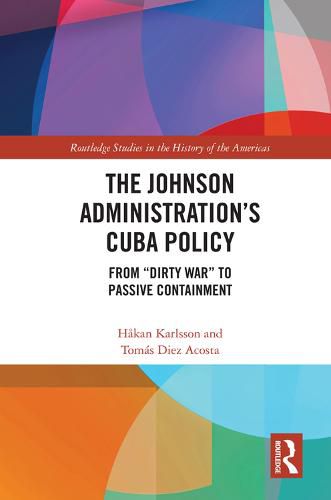Readings Newsletter
Become a Readings Member to make your shopping experience even easier.
Sign in or sign up for free!
You’re not far away from qualifying for FREE standard shipping within Australia
You’ve qualified for FREE standard shipping within Australia
The cart is loading…






This book presents the reader with a detailed analysis of the U.S. policy toward Cuba that was designed and adopted by the Lyndon B. Johnson administration. Based in governmental and other sources from both the U.S. and Cuba, the book analyzes the changes in the U.S. policy and its political and practical effects. Cuba still had to face a combination of dirty war and passive containment, but during the course of the 1960s, the influence of the dirty war policy was weakened due to the failure of the tactics to overthrow the Cuban Revolution by violent means. Instead, the policy was directed towards passive containment, characterized by its focus on an intensification of the economic blockade, the promotion of diplomatic isolation, and propaganda campaigns and psychological warfare. The book is unique since it is written from a Cuban perspective and it complements and enriches the knowledge of the U.S.-Cuban relationship during the 1960s, and the policy adopted by the Johnson administration.
$9.00 standard shipping within Australia
FREE standard shipping within Australia for orders over $100.00
Express & International shipping calculated at checkout
This book presents the reader with a detailed analysis of the U.S. policy toward Cuba that was designed and adopted by the Lyndon B. Johnson administration. Based in governmental and other sources from both the U.S. and Cuba, the book analyzes the changes in the U.S. policy and its political and practical effects. Cuba still had to face a combination of dirty war and passive containment, but during the course of the 1960s, the influence of the dirty war policy was weakened due to the failure of the tactics to overthrow the Cuban Revolution by violent means. Instead, the policy was directed towards passive containment, characterized by its focus on an intensification of the economic blockade, the promotion of diplomatic isolation, and propaganda campaigns and psychological warfare. The book is unique since it is written from a Cuban perspective and it complements and enriches the knowledge of the U.S.-Cuban relationship during the 1960s, and the policy adopted by the Johnson administration.